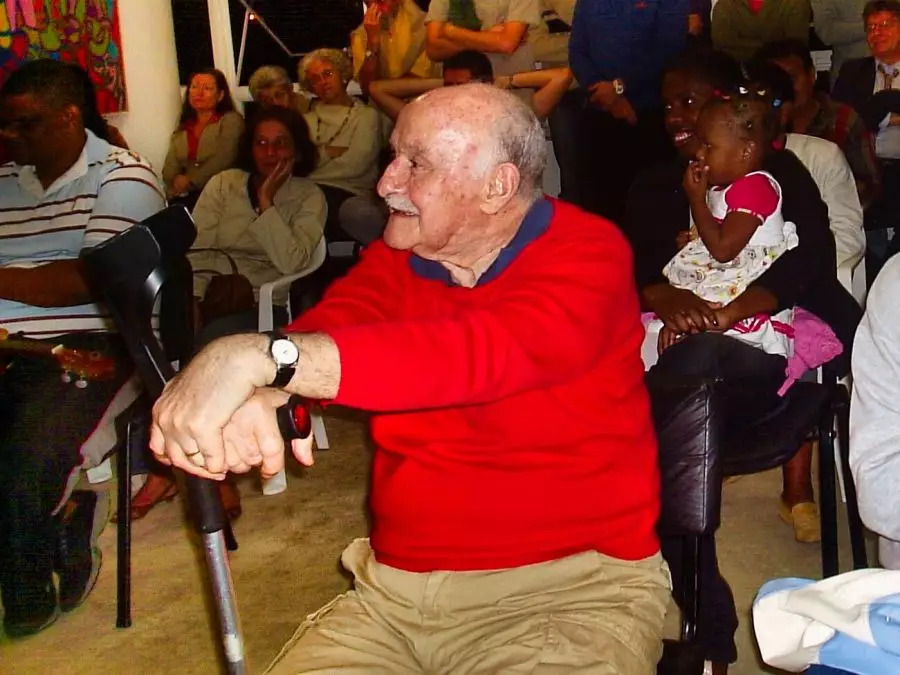José Maria Galhasi, a great communist fighter, indelible figure of the Brazilian communist movement and a staunch internationalist, he died on August 24 in São Paulo. At the age of 96, the cause for it was a natural death, as his health had been weakened by more then 80 decades of fighting and heroic struggles in the service of the revolutionary proletariat. José Maria is one of the veteran founders of A Nova Democracia (AND), a permanent and tireless enthusiast.
Born in 1926, between the two world wars, in the district of Méier, a suburb of Rio de Janeiro, José Maria was a witness and a persona in the main clashes of the class struggle in our country. Already in the beginnings of his youth, as a student at Colégio Pedro II, he joined the Communist Party of Brazil (P.C.B.) in 1944, in the context of great enthusiasm for the decisive role of the Soviet Union and the great Stalin in the defeat of Nazi-fascism. José always referred to a student from Pedro II who came to see him so they could talk, impressed by the combative posture of the young secondary student Zé Maria, in the face of the degrading trot at school. This high school friend, who would become comrade Otávio, died in the dungeons of the New State of Getúlio1. José Maria participated in the struggle in defense of the party and against the revisionists in the fraction led by Mário Alves (P.C.B.R.), and fought the profound immobility of the Brazilian CP leadership in the face of the 1964 military coup. José joined the armed resistance against the fascist military regime, acting in its front line and continued his fight in prison.
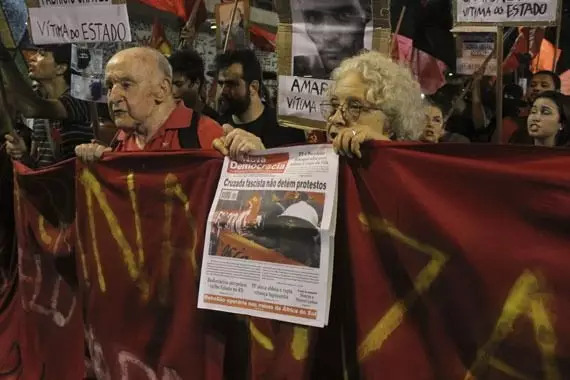
Requested by the P.C.B.R. to carry out what was known to be a risky mission, by conscious and voluntary decision, José accepted and during its execution he was arrested. In the prisons of the fascist regime, José Maria was a victim of the cruelest torture for one hundred and twenty days. The vile torturers went so far as to torture not only him, but also his wife and daughter in his presence. Between sessions of beatings and torture, exhausted and fractured, José Maria performed a rigorous series of physical exercises in his cell to stay strong and continue resisting. His firm conduct in not passing any information to the enemy was an example for many combatants of his time, as it continues to be for combatants today.
José was a tenacious critic of the Truth Commission, the conciliation of the Partido dos Trabalhadores (PT) governments with the military torturers of the 1964 regime. Because all the crimes committed by the military were not exemplarily punished, today the extreme right and their leader, Bolsonaro, can openly exalt the torturer Colonel Brilhante Ustra and everything goes unpunished. However, José Maria's testimony at the Truth Commission was historic, pointing out that, having followed the Nuremberg trials, he never saw anyone complaining about revanchism there.
In an interview with AND, in the February 2010 issue, he said:
"As a prisoner and someone who was tortured by the military regime and as someone who saw the best children of the Brazilian people disappear under the cowardly torture of those who were in power at the time, and still are today, immune to any kind of punishment, I do not admit this abject conciliation that Luiz Inácio extends to the torturers."
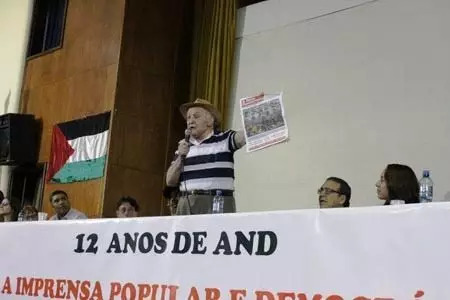
Upon leaving prison, he joined the Partido dos Trabalhadores, with the perspective of transforming the creation project of the PT into a Party of Marxist-Leninist characterization, spending 11 years of fighting within that organization. Recognizing the illusion of considering it possible to wage struggle within it, he had the clarity to recognize that the PT's practice in managing the Brazilian state did not represent any betrayal, since, as he later realized, the class nature of the PT, since its genesis, could only give that dismal result, even if it had to maintain, for a certain time, a radical discourse and practice to deceive the unwary.
He continued to fight against all types of revisionism, reformism and opportunism. He met many other veteran communists along the way, and began to dedicate himself to the re-establishment of the Communist Party in our country as a true revolutionary party of the proletariat.
José Maria is one of the founders of the newspaper A Nova Democracia, having made an invaluable contribution to AND, especially during its implementation phase, thanks to his vast network of friendships and political connections built over decades of struggles, which also contributed much to the production of articles and reports in the democratic-revolutionary field in our country.
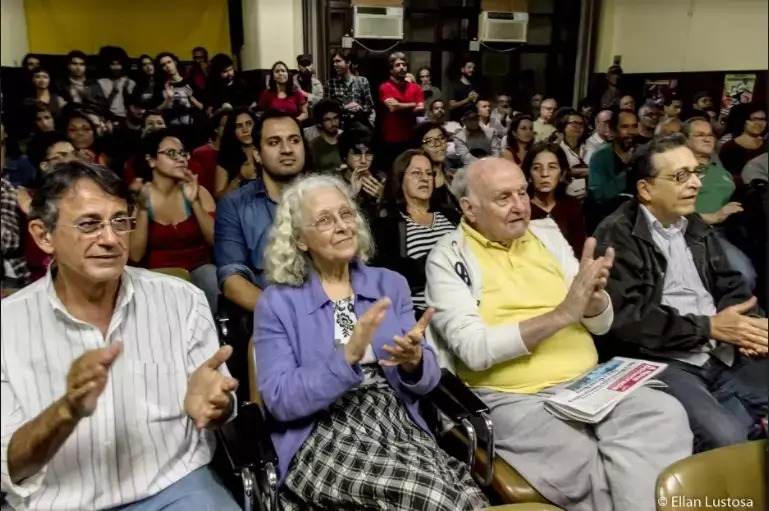
José also participated in the foundation of the Brazilian Center of Solidarity with the Peoples, holding the position of vice-president of the entity. He was active in Cebraspo's campaigns as far as his health allowed. An enthusiast of the Agrarian Revolution, he was a distinguished defender of the peasant movement, defending the land for those who live and work on it, and denouncing the repression of the old state against peasants in struggle. He encouraged and supported many comrades in the struggle for housing in Baixada Fluminense. He participated, representing Cebraspo, in numerous anti-imperialist activities, as in the actions against the presence of the two butchers Bush (2007) and Obama (2011) in Brazil and in actions in defense of Palestine and of political prisoners in the world.
In the days of June of 2013 and 2014 he was the most emblematic figure of the demonstrations that took over Rio de Janeiro, as in the whole country. His image with the poster spread through the internet, causing many young people to see in him inspiration for the beginning of their fights for the Revolution. His closest comrades recall the difficulty of making Zé retreat from the actions when the police started to repress the demonstrators. A vigorous fighter, he always wanted to participate in the resistance with the youth. Already over 80 years old, he participated actively, as far as his health allowed, together with his companion Beatriz, in the resistance to the attacks of the police forces that tried to put an end to manifestations of popular dissatisfaction such as in the famous demonstration in front of the Legislative Assembly of Rio de Janeiro, where he was, even with pneumonia. He was an enthusiast of the Independent People’s Front (FIP), created in 2013 to organize the energy of a fierce youth who did not want to fit within the narrow limits upheld by opportunist electoral parties and organizations. At the First Meeting of the FIP held in 2013, in Aldeia Maracanã, José was in the front line of resistance to the attempted assault by the Special Operations Battalion (Bope), which intended to end the meeting. His comrades only managed to get him out of there by appealing to him to help protect women and children who were to retreat from the locality. No one ever heard him complain about the natural difficulties of age. T to the youth, he was an example of combativeness and persistence in the struggle. When, in 2014, several young comrades were arrested for participating in the protest days, he reinforced them in their convictions: "Congratulations, prison is a medal on the chest of a revolutionary."
He was always surrounded by youth, who he, in particular, was extremely pleased to receive in his small apartment on Ladeira dos Tabajaras, in Copacabana. He passed on his experience and urged them not to give up in the struggle, to always raise high the red flag of communism, a flag that he kept high all his life.
He maintained in a disciplined way his daily physical activity until he was advanced in years, having been a volleyball player in his youth, which contributed to maintain his health and disposition, even in the periods he spent incarcerated.
He considered himself a man of action, but his teachings displayed in countless testimonies and interventions at public events and, mainly, in the example of his live, illuminate the theory and practice of all who believe that only the uninterrupted New Democratic Revolution towards Socialism will provide a solution to the serious problems that the Brazilian people are experiencing; an enthusiastic internationalist fighter, he had the same conviction, that only the Proletarian World Revolution will be able to give emancipation and the reign of freedom to the oppressed peoples and the international proletariat.
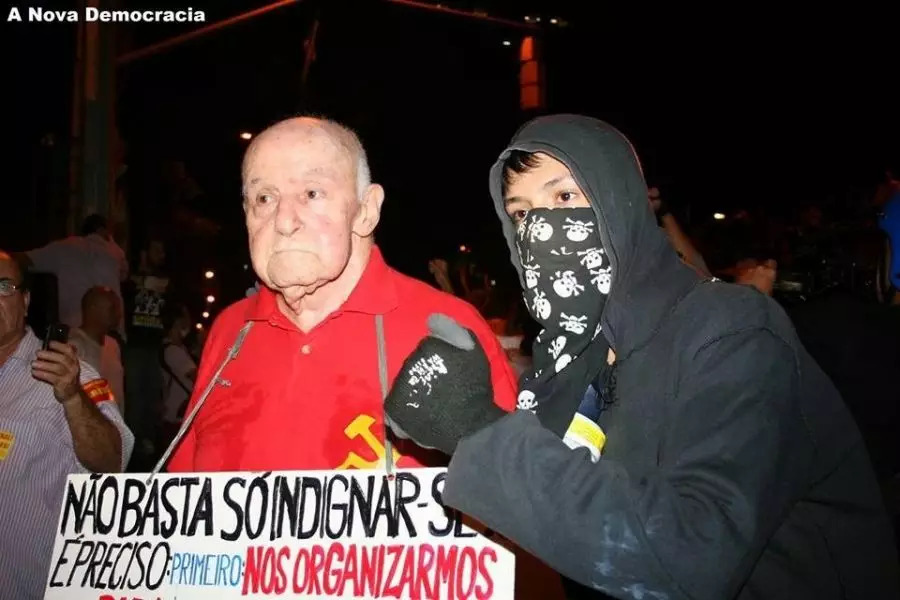
Zé Maria Galhasi is an example of a convicted and self-confessed communist for all his live, who did not let himself be overwhelmed by the wave of revisionism confluent with the general counterrevolutionary offensive of imperialism from the 1980s onwards. With his firm class position, he found Maoism and recognized it as the third, new and superior stage of Marxism, the Marxism-Leninism of this time. He never let himself be charmed by the counter-propaganda of imperialism, in its phase of unprecedented decomposition, firmly rejecting the fashions and petty-bourgeois pseudo-theories. An intransigent defender of the dictatorship of the proletariat, he never renounced socialist experiences, he staunchly defended the great comrade Stalin and Chairman Mao Tsetung, and he knew how to recognize the need for successive Proletarian Cultural Revolutions to develop the class struggle in socialism and move towards luminous communism. He was a defender of the revolutionary process in Peru, led by the Communist Party of Peru, and of the contributions of universal validity of Chairman Gonzalo to Maoism, as well as of Gonzalo thought. He never allowed himself to slacken off, and always recognized that only people's war can win with all reactionaries and counterrevolutionary terror, however powerful they may try to appear. His work, legacy and life of total and exclusive dedication to the cause of Communism, to the cause of the class, of the proletariat, are part of the arsenal of experiences of the revolutionary movement in Brazil and in the world.
Comrade José Maria Galhasi, present in struggle!
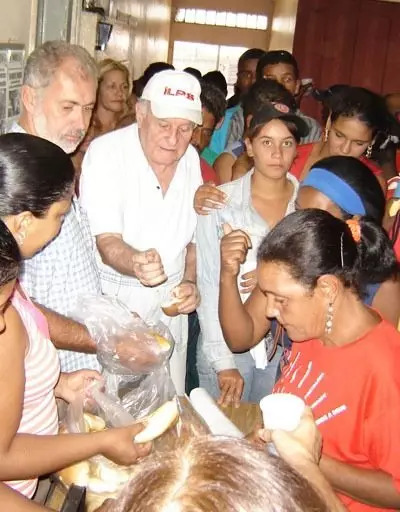
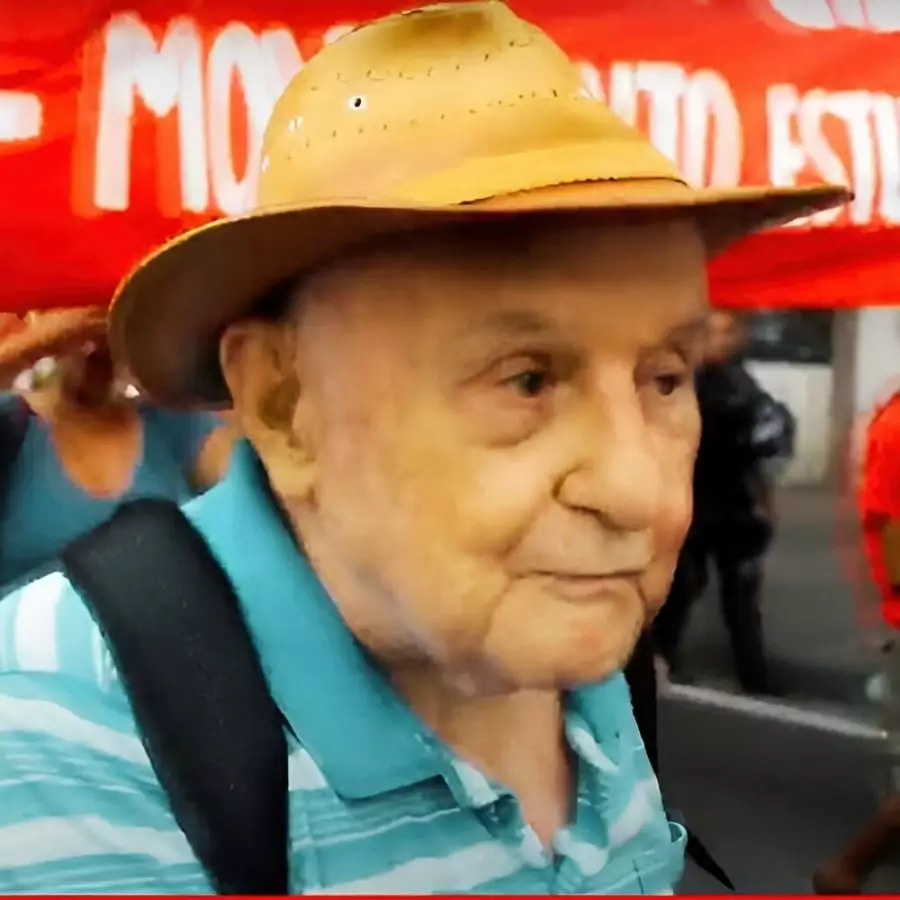
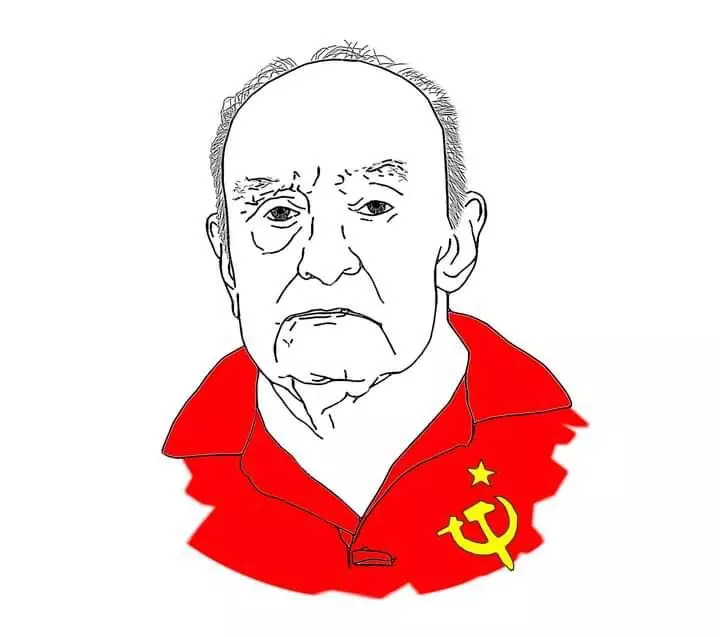
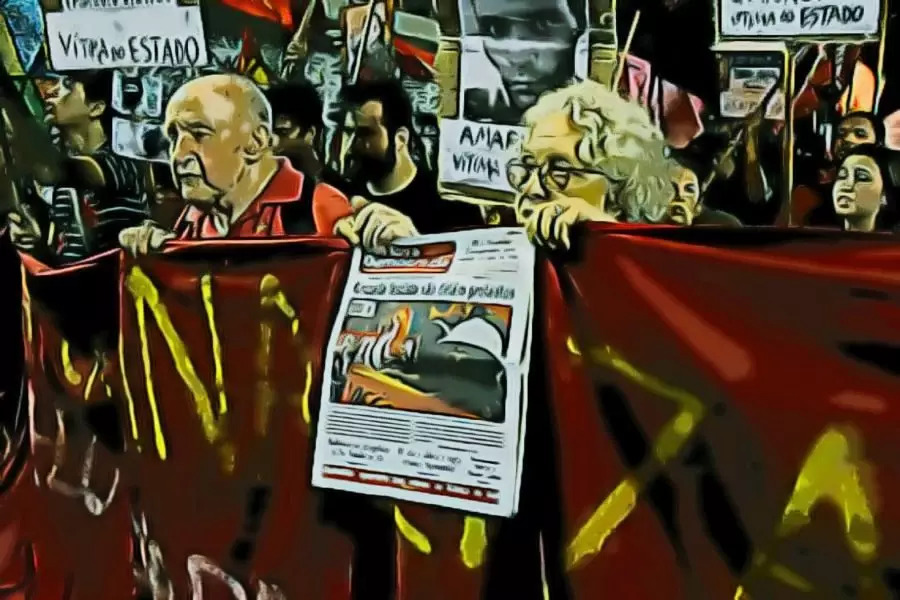
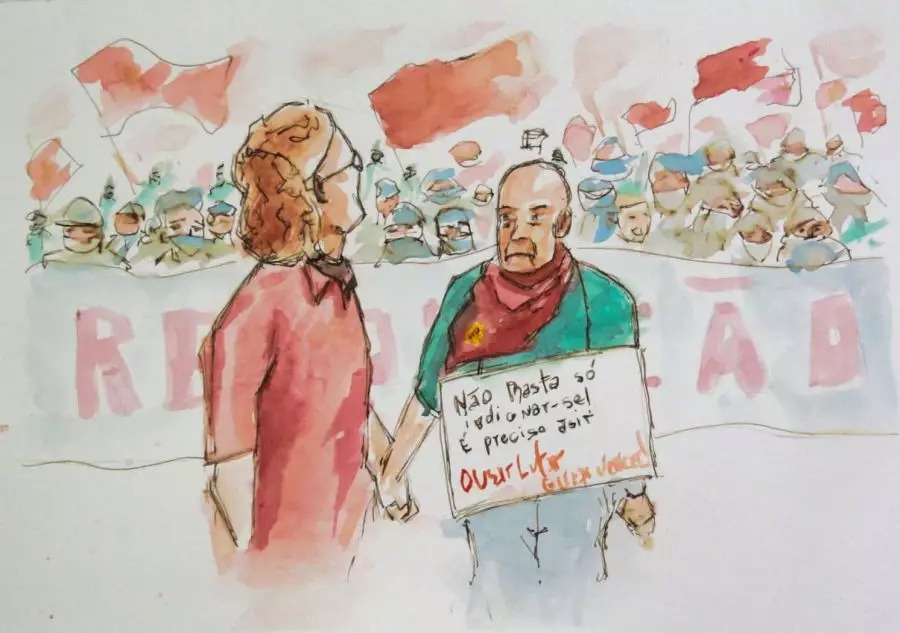
1Portuguese original “Estado Novo getulista” literally translates to “getúlioist New State”, in reference to the proclaimed “Estado Novo” by Getúlio Vargas, President of Brazil from 1930 to 1945 and from 1951 to 1954
